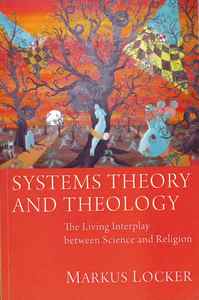Portal, system and sacred order: America
Murphy, Peter (2011) Portal, system and sacred order: America. In: Locker, Markus, (ed.) Systems Theory and Theology: the living interplay between science and religion. Pickwick Publications, Eugene, Oregon, USA, pp. 143-175.
![[img]](https://researchonline.jcu.edu.au/22547/2.hassmallThumbnailVersion/22547_Murphy_2011_Book_cover.jpg)
|
Image (JPEG) (Book Cover)
- Cover Image
Download (168kB) |
|
|
PDF (Accepted Version)
- Accepted Version
Download (321kB) |
|
|
PDF (Published Version)
- Published Version
Restricted to Repository staff only |
Abstract
Around World War I, American universities became involved in promoting academic programs and scholarship on the theme of civilization. Partly this was the result of America's entry into the European war-itself a function of Americas tentative emergence as a world power. Reflection on the nature of civilization was a search for the intellectual frame for Americas world role. Partly it was also a function of America's emergence as a force in the arts and sciences. Civilization was a shorthand term for ebullient intellectual creation.
The other significant cause of the swell of interest in the theme of civilization was the impact of continuing large-scale immigration to the United States of Catholic, Orthodox, and Jewish populations from Southern and Eastern Europe. This immigration of poor, labouring and non-Protestant groups was a subject of both social and intellectual anxiety. On the intellectual front, it provoked questions about the role and place of the non-Protestant mind in the predominately Protestant intellectual landscape of America.
In response to all of the above, American academics and intellectuals created a new model of civilization: "Western Civilization." This model was inclusive of the contribution of Greeks, Romans, Jews, Catholics, Protestants, Romantics, and Pragmatists. It eschewed both the developmental focus of Scottish Enlightenment and Marxist universal history, and the pessimism of Spengler philosophical history. It was also more sceptical of the non-Western contribution to intellectual creation than Toynbee.
The current essay does a number of things. Firstly, it looks at the role of Catholic intellectual milieus Neo-Aristotlean and Neo-Thomist currents-in creating the climate for and the model of "Western Civilization." Secondly, the essay explores the strengths and weaknesses of that model. Thirdly, the current essay discusses the way in which a number of the key ideas of Ludwig von Bertalanify provide clues to correcting and overcoming the frailties of the "Western Civilization" model without denying its strengths. In doing so, the essay returns to the themes of Bertalanffy "system theoretical concept of history" in General System Theory.
The essay adapts Bertalanffy's notions of open systems and self-organizing order ("organization") to show how civilizations with high levels of artistic and scientific formation rely on autopoietic ecumenes in order to emerge and sustain themselves. The essay shows how the model of the autopoietic ecumene provides a more precise account of civilization without comprising the insights of Neo-Aristotlean universal history. The revisionist model as applied to America shows how autopoietic ecumenes conditioned the very rise of neoAristotlean and Neo-Thomist thought in North America.
| Item ID: | 22547 |
|---|---|
| Item Type: | Book Chapter (Research - B1) |
| ISBN: | 978-1-60608-739-8 |
| Date Deposited: | 04 Feb 2013 02:30 |
| FoR Codes: | 16 STUDIES IN HUMAN SOCIETY > 1608 Sociology > 160806 Social Theory @ 50% 20 LANGUAGE, COMMUNICATION AND CULTURE > 2002 Cultural Studies > 200204 Cultural Theory @ 50% |
| SEO Codes: | 97 EXPANDING KNOWLEDGE > 970116 Expanding Knowledge through Studies of Human Society @ 50% 97 EXPANDING KNOWLEDGE > 970120 Expanding Knowledge in Language, Communication and Culture @ 50% |
| Downloads: |
Total: 13266 Last 12 Months: 11 |
| More Statistics |



